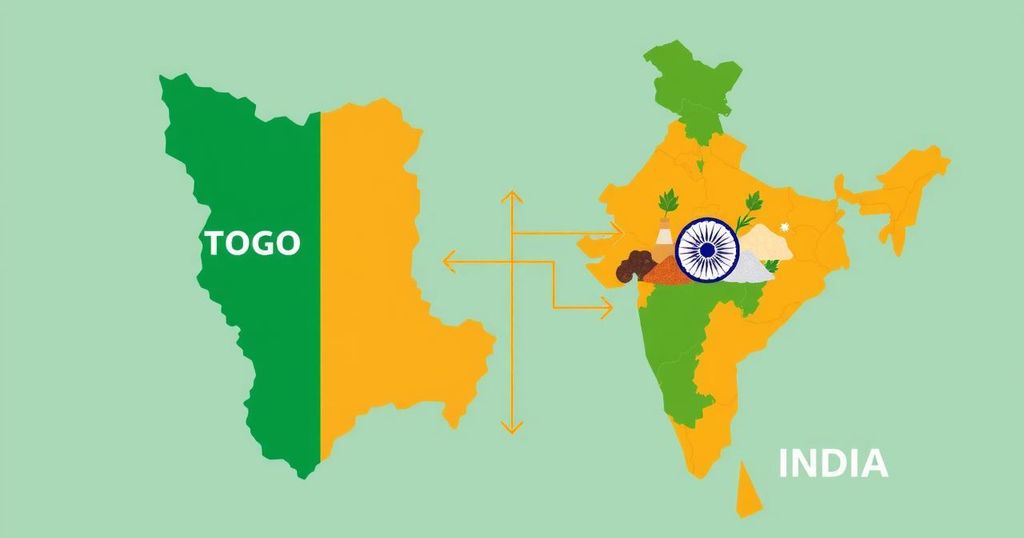Fertilisers and Chemicals Travancore is in negotiations to secure a three-year contract to purchase 250,000 metric tons of rock phosphate annually from Togo’s SNPT. This contract marks the first long-term fertiliser agreement between an Indian company and the African nation, aimed at stabilizing supply and prices for the agricultural sector. Rock phosphate imports from Togo have seen a significant increase recently, highlighting the growing reliance on this resource.
Fertilisers and Chemicals Travancore (FACT) is negotiating a significant three-year contract with Societe Nouvelle des Phosphates du Togo (SNPT) to procure 250,000 metric tons of rock phosphate annually. This move will establish the first long-term fertiliser deal between an Indian company and Togo, marking a pivotal advancement in agricultural resource management for India.
The initiative comes as Indian firms seek to secure long-term fertiliser import agreements to mitigate risks associated with price fluctuations and supply shortages, particularly for essential soil nutrients that support the agricultural sector, which constitutes 15% of India’s $2.7 trillion economy.
FACT recently formalized a non-binding agreement for this acquisition, with all details finalized except for price negotiations, which are set to occur quarterly. Imports of rock phosphate from Togo to India have been progressively increasing, with the current fiscal year seeing an impressive 30% rise over the previous year, totaling 1.1 million tons according to the Fertiliser Association of India.
The ongoing negotiations between Fertilisers and Chemicals Travancore and Societe Nouvelle des Phosphates du Togo signify a strategic effort by Indian firms to stabilize their fertiliser supply. By establishing this long-term contract, FACT aims to enhance its operational resilience against market volatility, thereby supporting India’s substantial agricultural sector. As the imports from Togo continue to rise, this agreement could play a crucial role in sustaining the necessary nutrient supply for India’s crop production.
Original Source: manufacturing.economictimes.indiatimes.com




